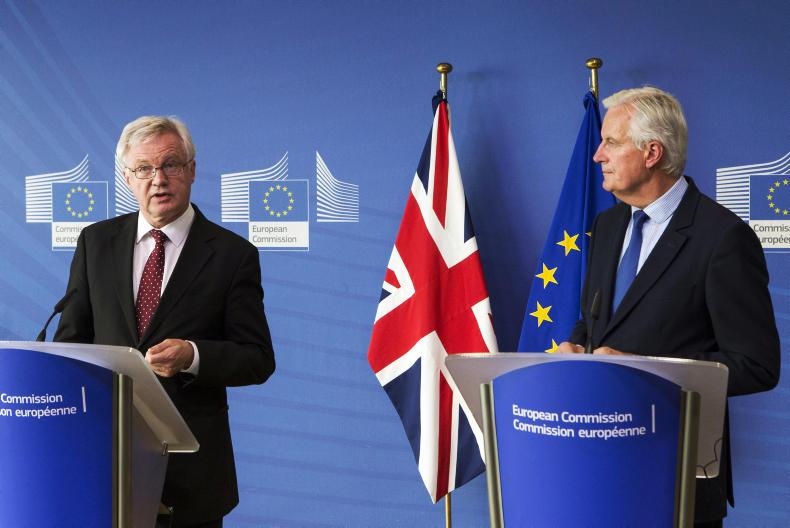The Livestock and Meat Commission in Northern Ireland (LMC) has released a report that suggests a transition period of five years after the UK formally leaves the EU in March 2019.
The LMC is the beef and sheep meat levy organisation in Northern Ireland (NI) and performs a similar role to QMS in Scotland. The report findings and recommendations are applicable to Scotland in so far as the impact on exports is concerned, as well as access to the UK market. NI has a much smaller domestic market than Scotland and is more dependent on exports.
This report follows on from the one produced in August by the Agri-Food and Biosciences Institute (AFBI), which was commissioned by the Agriculture departments of the four UK administrations. The work on the LMC report was carried out by the Anderson Group, supported by Oxford Economics.
Most striking element
The most striking element is that it suggests a five-year transition period to follow the UK leaving the EU in March 2019. It has been reported that the UK Treasury shared this view but in the Prime Minister’s Florence speech last week, she has suggested just a two-year transition.
Like the previous AFBI report, it suggests that a WTO tariff-based arrangement should be avoided, as it effectively closes the export market to the EU. While this would hinder the Scottish beef industry, like elsewhere in the UK, it would totally decimate the sheep industry. The UK in general is the third largest exporter of sheepmeat in the world, with the vast majority going to the EU, France in particular.
Reduced consumption
It recognises that the WTO tariffs on beef would squeeze out EU imports from the UK and consequently drive up domestic prices in the short term. However, it goes on to predict that higher prices to consumers would lead to reduced consumption which, in turn, would mean any increase in farmgate price would ultimately be lost.
The report highlights that if the UK were to adopt an open-door tariff-free import position as part of a cheap food policy, the consequences would be disastrous for the domestic industry. This “Singapore model”, as it is frequently referred to, presents an open door to countries that export agricultural produce, which in turn leads to cheaper food for consumers.
In its recommendations the request for a five-year transition is the most notable. In addition to this, the report also wants an agri-food workers’ scheme to assist with labour post-Brexit. Like Scotland, the NI food processing industry is heavily dependent on EU nationals and, in many factories, non-nationals represent half the workforce.
The report also identifies the need to pursue access to non-EU markets more aggressively, which is of interest to the Scottish industry. Access was recently secured for the whole UK to the Philippines, and NI along with Scotland has low-incidence BSE status.
Equal standards
On the subject of imports to the UK, the report strongly advocates that the same standard be demanded as is required for domestic production. Again, this something the industry in Scotland – and indeed the rest of the UK – would find favour with. It is a continual fear that the domestic industry could be placed at a disadvantage if, for example, beef imports could be produced using growth-promoting hormones that are currently illegal in the UK but not so in major beef exporting countries.
More controversial
What may be more controversial is the suggestion that standards of welfare and factory controls be maintained at the EU standard. Some companies in the UK may take the view that if they are not exporting to the EU then there would be no need for compliance to that standard.
This is the second report on the impact of Brexit on the meat industry in a short space of time. The previous AFBI report was on a UK-wide basis and, while this one was produced for the NI industry, its findings are equally applicable to Scotland and the rest of the UK. From both reports it is clear that the beef and sheep meat industries will face considerable challenges outside the EU.






 This is a subscriber-only article
This is a subscriber-only article











SHARING OPTIONS: